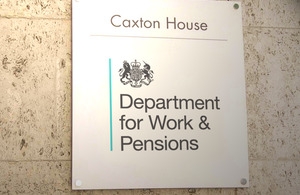Over 50% of men reaching state pension age in 15 years will have a lower notional income under the new system, official figures have shown.
The DWP statistics, detailing the impact of the new state pension on an individual’s pension entitlement, suggested that by 2028 about half of men reaching state pension age would be getting less than under the current system.
In 2029 and 2030 more than 50% of men reaching state pension age will get lower amounts, the report demonstrated.
This contrasts to women, for who over 60% will be better off in the same period – 2028 to 2030.
Between 2017 and 2030, however, around three-quarters of individuals will have a notionally higher outcome, officials stated.
The report said: “When compared to males, under the first 15 years of nSP, a greater proportion of women than men will have a notionally higher outcome under the new system – just over 75% of females, compared to just over 70% of males. In terms of median changes in weekly state pension outcomes under nSP, females will also fare better than males under the new system.
“Because contributions under the current system will be recognised in the new State Pension system, subject to the minimum qualifying period, at the point of implementation nobody will have an amount that is lower than the pension they could have become entitled to based on their own pre-implementation contributions under the current system’s rules.
“This means that the impacts discussed in this document are notional.”
Adrian Walker, retirement planning manager at Old Mutual Wealth, said: “This data should be a wake-up call to the public that as far as possible they should not rely on the state pension as their only provision for retirement.
“While the DWP make a great effort in the data to stress that around 75% of people who reach state pension age under the new system will have a notionally higher state pension than what would have been provided under the current system, the numbers look less rosy in 10-15 years’ time – when over 50% of men reaching state pension age will have a lower notional income than under the current system.
“Today’s numbers are therefore likely to worry those age 55 and under the most.”
He said: “The Government has received plenty of adverse reaction to its imminent state pension changes, much of which seems to boil down to a general misunderstanding of what it means to the general public.
“Terms such as ‘flat rate’ may make sense to the DWP and Treasury but to most people that just means a single figure – which it is anything but. In that respect they appear to have dropped the phrase ‘flat rate’ in favour of ‘new State Pension’, however in my view there is still a long way to go before the public get to grips with these.” changes.”

